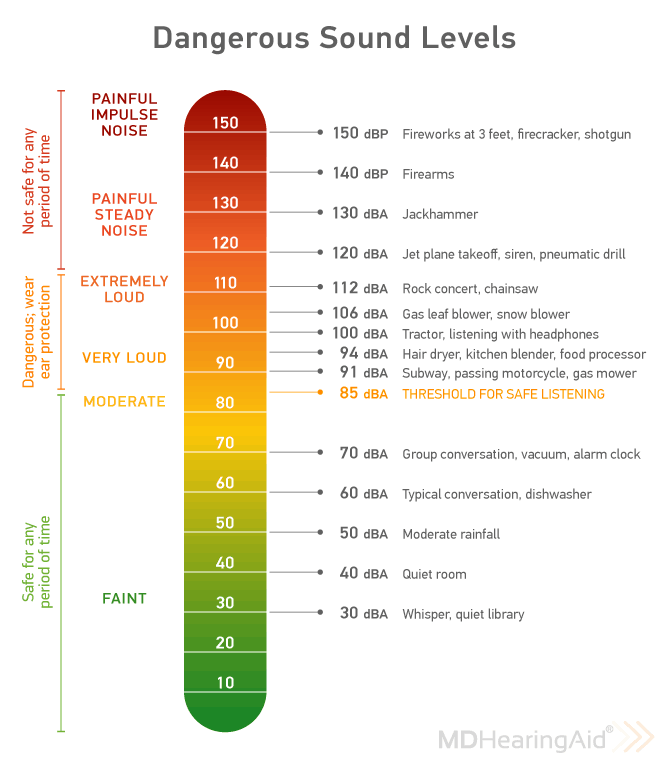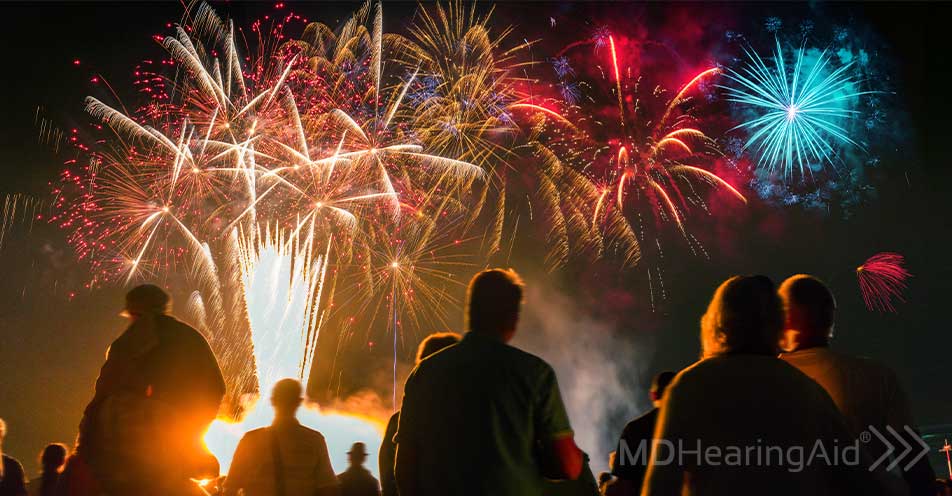While fireworks are an iconic part of any 4th of July celebration, more and more of these beautiful but dangerous light shows are extending throughout July and even August. Many Americans buy their own from pop-up fireworks stores and set them off in their own backyards for weeks after the official holiday. There is a lot of education on proper handling of fireworks, especially when it comes to fire hazards and bodily injury. But because firework explosions are so quick, we don’t think about what those sounds do to our ears. Just one firework blast close to you can cause irreparable damage.
How Loud are Fireworks and What is Impulse Noise?
Did you know that a short but loud blast of noise (even one that lasts for less than a second) can cause immediate permanent hearing loss? This is called impulse noise, and it’s how we describe fireworks. Shotguns also fall into this category. According to the American Sign Language Hearing Association, impulse noise gets measured in dBP (decibel peak pressure) and fireworks reach 150 dBP at three feet away, which puts them well above the safe sound limit of 85 dBA. Even jackhammers only register 130 dBP!
Impulse noise can create temporary deafness, but even after some of your hearing comes back, there could still be major long term permanent damage. No holiday celebration is worth that.

Information found on the ASHA website.
Ear Protection When Handling Fireworks
If you are operating the fireworks (including the smaller home ones), you should absolutely be wearing some kind of decibel minimizing ear protection. Earplugs are popular and relatively inexpensive. Earmuffs designed for hunting or industrial jobs are also very useful when working with fireworks. Either of these options can reduce firework noise by 15–30 decibels, depending on the particular brand and model (make sure to look for this information on the product specs before buying). Follow the earplug or earmuff instructions carefully to ensure your ears are properly protected.
Earplugs and earmuffs can be worn together for added protection, but just make sure you can still hear the people around you. It’s no good to have your hearing protected if you can’t hear.
Ear Protection When Watching Fireworks
If you’re simply watching the fireworks show, you might want to invest in some ear protection anyway. “Children and infants are the most vulnerable to noise damage because the same noise produces a higher sound pressure in smaller ear canals,” says audiologist Brenda Dickman. “Disposable ear plugs may be too large for a child’s or baby’s ears, though, so child- or infant-sized ear muffs are preferable for children.”
Even if your friends and family are watching the fireworks from a distance, ear protection is still very helpful for people who have sensory issues around loud noises (especially kids). Bringing a few sets of ear plugs or earmuffs to any fireworks show is just a good idea in general.
Be Kind to Your Pets
You might want to take Rover to the park on Independence Day, but remember that dogs are much more sensitive to loud noises than human beings. Consider leaving man’s best friend at home if you plan on watching a firework display.
Hearing health is so important, and the best thing you can do to retain your hearing is to be proactive in protecting it. By following these safety tips, you can protect your hearing around fireworks.
Think you may have hearing loss? Take our quick and easy online hearing test.
TAKE ONLINE HEARING TEST
Do you need hearing aids but can’t afford them? Now you can. Our quality hearing aids are a fraction of the cost of the hearing clinic’s.
CHOOSE YOUR HEARING AID
